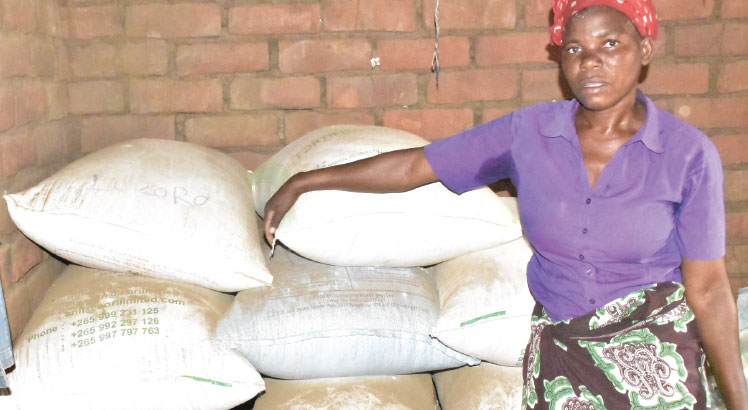Social cash transfers changing lives
C
rushing rocks for a living has never been easy, but such is life for Edna Amadu of Masinde Vllage in Traditional Authority (T/A) Chigaru, Blantyre.
“Since 2020, I have made millions,” she says, swinging a massive hammer to break granite rocks to bits. “I used my monthly social cash transfer to venture into the business.”
Amadu is one of the beneficiaries of the nationwide Social Cash Transfer Programme (SCTP) implemented by the Government of Malawi and its partners.
“I used the proceeds to build a decent house, buy furniture and pay school fees for my children up to technical college and some in secondary school,” she explains.
Seated on the veranda of her three-bedroom house roofed with iron sheets, Amadu sipped water to cool her throat amid a surging heatwave that had hit 33 degrees Celsius, according to the weather department.

Before taking to the rocks, the 43-year-old struggled to raise her five children single-handedly. Hers was a house of poverty and hunger, she says.
Amadu and her husband seperated almost eight years before she started receiving monthly cash transfers and instantly stopped supporting the children he left behind.
“I depended on low-paying piecework in well-off neighbours’ fields to support my family,” recalls Amadu.
Several other households in her community wallowed in poverty.
“I had no means to take care of my four children. Worsening poverty forced my children and I to wake up early every day to search for piecework for survival,” narrates Zione Magombo of Khwala Village in T/A Chigaru.
The slavish piecework left Magombo’s children on the verge of quitting school.
Two—one in Standard Seven and another in Form One—temporarily dropped out because she could not afford food and their educational needs.
While struggling to cushion their vulnerability, Amadu and Magombo received a boost in 2018 when they were selected for SCTP, popularly known as Mtukula Pakhomo.
Amadu saved and invested part of the cash-outs in a quarry-stone business
“My business attracts customers from Zalewa Trading Centre. I make up to K100 000 after selling two tonnes of quarry stone on a good day,” says Amadu.
Magombo now owns 23 goats and 21 chickens.
“I have built a standard house and no longer worry about the educational needs of my four children in technical college and secondary school,” she says.
Magombo also buys fertiliser and other farm inputs for her farmland.
“Last rainy season, I harvested 23 bags weighing 50 kilogrammes each, eight bags of pigeon peas and six bags of groundnuts,” she brags
In Blantyre, the World Bank finances SCTP through the Social Support for Resilient Livelihoods Project (SSRLP). The funding rolled out in 2020 will phase out in 2027.
SSRLP is being implemented by the Malawi Government in all 28 districts where it is expected to support 778 000 households, up from the current 490 984. The National Local Government Finance Committee facilitates it with support from Multi-Donor Trusts, including the World Bank.
This is part of the Malawi National Social Support Programme, which includes social cash transfers, livelihood support and climate-smart enhanced public works.
The beneficiaries are identified through the unified beneficiary registry (UBR).
SCTP supports 147 000 households nationwide, including 7 804 beneficiaries from Blantyre district, to protect the poorest and the most vulnerable from sliding into dehumanising hunger and poverty. It also supports children to remain in school.
Amadu and Magombo are optimistic about graduating from poverty, thanks to the Social Cash Transfer Programme.
Blantyre district principal social welfare officer Kumbukeni Kauwa says it is pleasing that SCTP recipients are slowly moving out of abject poverty.
The households also receive a lean season top-up amid recurring climatic and economic shocks.
He states: “The programme has improved the livelihoods of the recipients’ households. They can purchase food, make financial savings, venture into small-scale businesses and keep children in school enrolment and attendance.
“This signifies that slowly households are moving out of ultra-poverty and starvation. It is the government’s commitment to end poverty, hunger and starvation.”
Government plans to increase the monthly cash transfers so that poor households can afford some basic necessities with the devaluation of the local currency.





